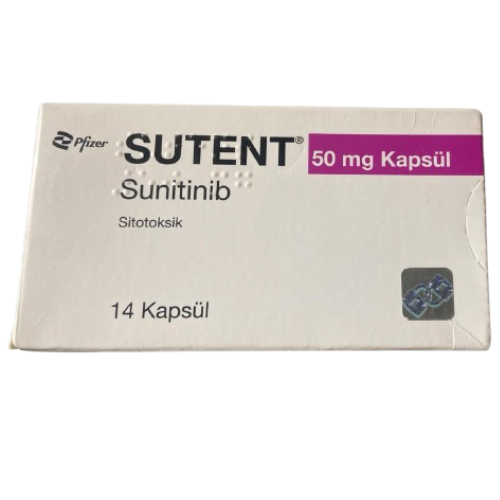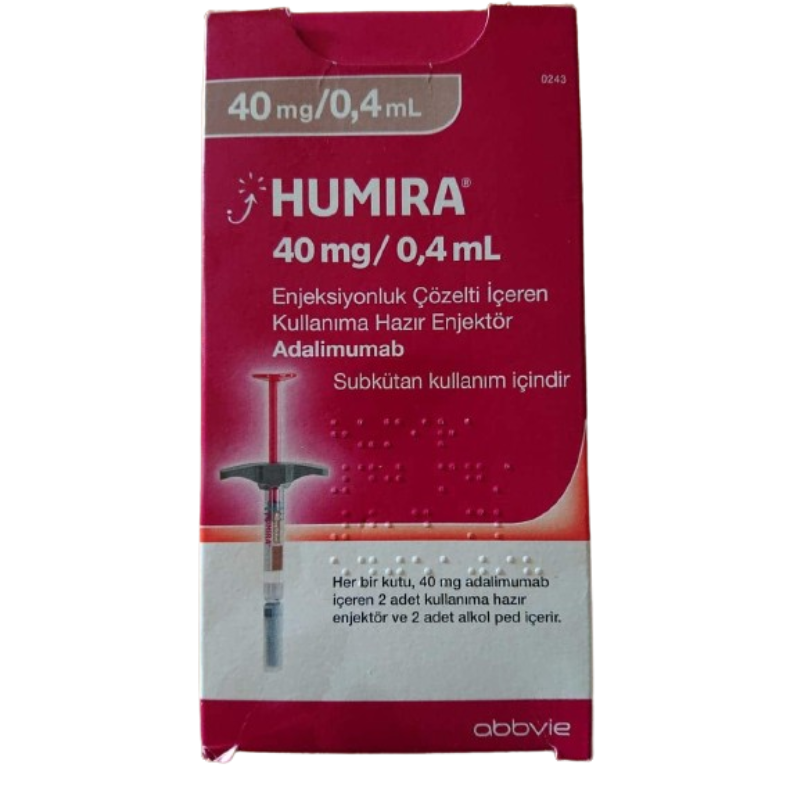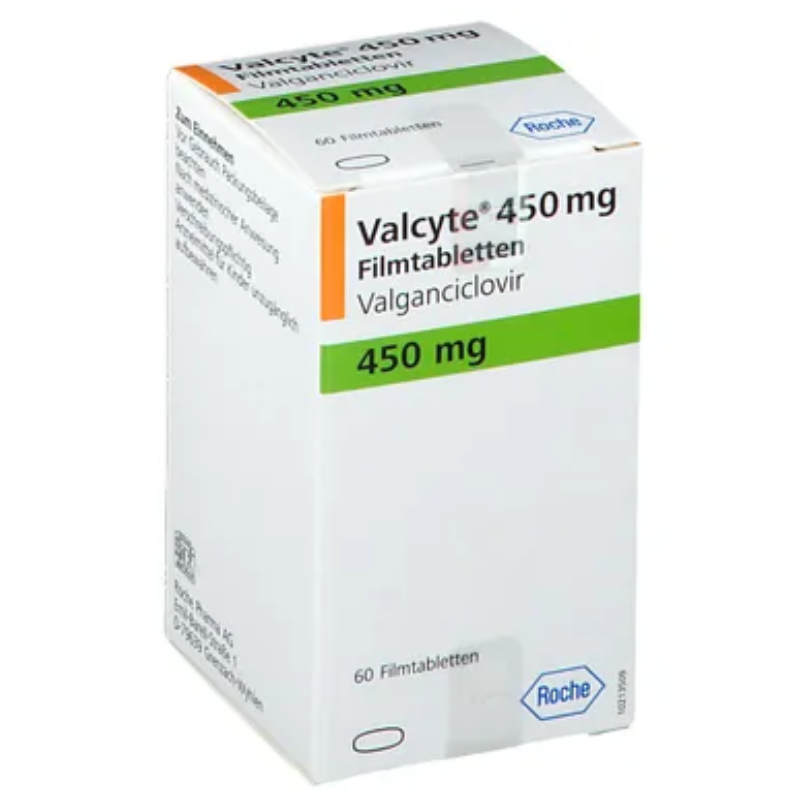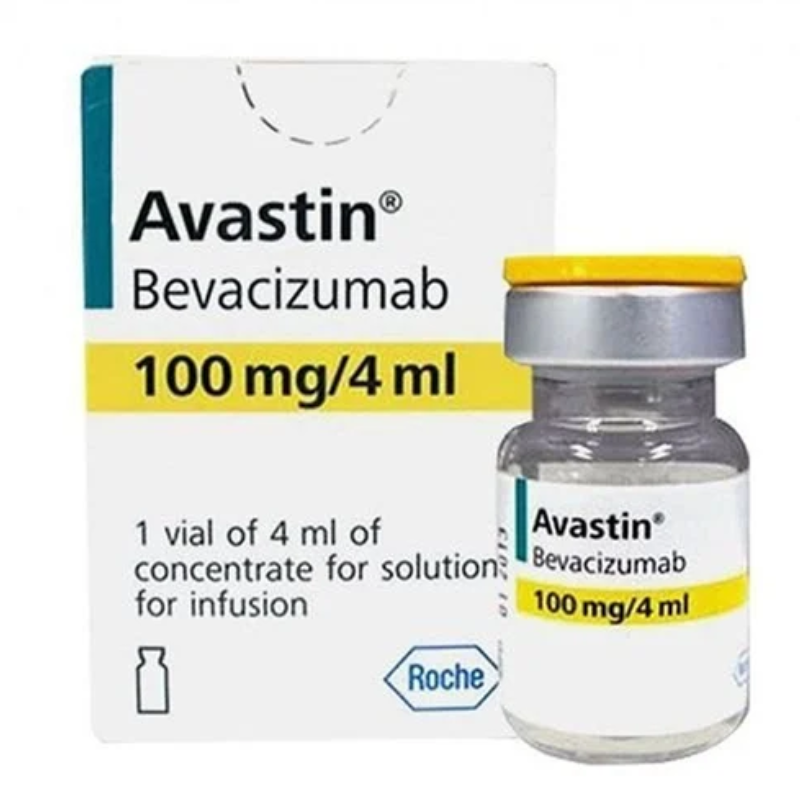Sutent 50mg Tablets (Sunitinib)
₨220,000.00
Sutent 50mg tablets contains Sunitinib, which is now available in Pakistan at Online Pharmacy. The price range of this is Rs.180,000/-. to Rs.230,000/-.
Product Description
Brand: Sutent
Packet Size: 14 tablets
Active ingredient: Sunitinib
Manufacturer: Pfizer
Treatment: Kidney Cancer
Additional Details
Uses of the Sutent 50mg Tablets
Gastrointestinal Stromal Tumor (GIST):
Indicated for adult patients with unresectable or metastatic GIST after disease progression on imatinib mesylate or in cases where the patient cannot tolerate imatinib.
Advanced Renal Cell Carcinoma (RCC):
Approved for the treatment of adult patients with advanced or metastatic RCC.
Adjuvant Treatment of Renal Cell Carcinoma:
Used as an adjuvant therapy in adult patients at high risk of recurrence following nephrectomy (surgical removal of a kidney).
Pancreatic Neuroendocrine Tumors (pNET):
Indicated for the treatment of progressive, well-differentiated pNET in adults with unresectable locally advanced or metastatic disease.
How Does Sutent 50mg Tablet Work?
Sunitinib (Sutent 50mg Tablets) works by targeting and inhibiting specific proteins involved in the growth and development of cancer cells.
Here’s a breakdown of its mechanism of action:
Tyrosine Kinase Inhibition: Sunitinib is a tyrosine kinase inhibitor. Tyrosine kinases are enzymes that play a crucial role in cell signaling, promoting cell growth and survival.
Targeted Protein Blockage: Sunitinib specifically targets and blocks multiple receptor tyrosine kinases, including vascular endothelial growth factor receptors (VEGFRs) and platelet-derived growth factor receptors (PDGFRs).
Tumor Growth Inhibition: By inhibiting these receptors, Sunitinib disrupts the signaling pathways that support the growth and survival of cancer cells. This can lead to:
Reduced blood vessel growth: Sunitinib can inhibit the formation of new blood vessels (angiogenesis), which are essential for tumor growth and metastasis.
Cancer cell death: Sunitinib can induce apoptosis, or programmed cell death, in cancer cells.
Tumor shrinkage: Over time, Sunitinib can cause tumors to shrink or stop growing.
How Should You Take Sutent 50mg Tablet?
To take Sutent (sunitinib malate) 50mg Tablets correctly, follow these guidelines:
Sutent can be taken with or without food. However, it’s advisable to maintain a consistent routine regarding meals.
Do not crush, chew, or open the capsules. Swallow them whole to ensure proper absorption and effectiveness.
If you miss a dose, take it as soon as you remember, unless it’s less than 12 hours until your next scheduled dose. In that case, skip the missed dose and continue with your regular schedule. Do not double up on doses.
Regular monitoring of blood pressure and liver function may be necessary during treatment cycles to manage potential side effects effectively.
Recommended Dosage of Sutent 50mg Tablets
Gastrointestinal Stromal Tumor (GIST):
Dosage: 50 mg taken orally once daily.
Schedule: Administered for 4 weeks, followed by a 2-week rest period (Schedule 4/2).
Advanced Renal Cell Carcinoma (RCC):
Dosage: 50 mg taken orally once daily.
Schedule: Same as GIST—4 weeks on, 2 weeks off.
Adjuvant Treatment of RCC:
Dosage: 50 mg taken orally once daily.
Schedule: Follow the same 4/2 cycle for a total of nine cycles.
Pancreatic Neuroendocrine Tumors (pNET):
Dosage: 37.5 mg taken orally once daily.
Schedule: Administered continuously without a scheduled rest period.
Dose Adjustments
Dosage modifications may be necessary based on individual safety and tolerability, typically in increments or decrements of 12.5 mg.
The maximum dose should not exceed 75 mg for GIST and RCC or be reduced below 25 mg.
Warnings and Precautions of Sutent 50mg Tablets
Sutent (sunitinib malate) 50mg Tablets come with several warnings and precautions that patients and healthcare providers should be aware of. Here are the key points:
Hepatotoxicity:
Sutent can cause severe liver damage, which may be fatal. Regular monitoring of liver function through blood tests is essential. Symptoms of liver problems include:
- Loss of appetite
- Upper right stomach pain
- Itching
- Dark urine
- Jaundice (yellowing of the skin or eyes).
Cardiovascular Events:
There is a risk of serious cardiovascular issues, including heart failure, heart attack, and cardiomyopathy. Patients should be monitored for symptoms like chest pain, shortness of breath, or unusual fatigue
Thrombotic Microangiopathy (TMA):
Sutent may lead to TMA, which involves blood clots in small blood vessels and can affect organs like the brain and kidneys. Symptoms include:
- Fever
- Fatigue
- Decreased urination
- Unusual bruising
Skin Reactions:
Severe skin reactions, including blistering or peeling, can occur. Immediate medical attention is required if symptoms develop.
Gastrointestinal Perforation:
There is a risk of gastrointestinal perforation, which can be life-threatening. Patients should report any severe abdominal pain immediately.
Proteinuria and Kidney Problems:
Patients may develop protein in their urine, leading to kidney issues that could be serious or fatal. Regular monitoring is advised.
Endocrine Effects:
Sutent can affect thyroid function; monitoring thyroid levels is recommended, especially if symptoms arise such as fatigue, weight changes, or mood alterations.
Allergic Reactions:
Although rare, allergic reactions may occur, presenting as skin rash, itching, or more severe symptoms like difficulty breathing and swelling.
Mouth Sores:
Mouth sores are common with Sutent use and can range from mild to severe. Patients should inform their healthcare provider if they develop sores.
Possible Side Effects of Sutent 50mg Tablets
Common Side Effects:
- Fatigue: Feeling tired or exhausted
- Diarrhea: Loose stools
- Nausea and vomiting: Feeling sick to your stomach or throwing up
- Loss of appetite: Decreased interest in food
- Skin rash: Redness, itching, or bumps on the skin
- Hair loss: Thinning or loss of hair
- Mouth sores: Painful sores in the mouth
- High blood pressure: Elevated blood pressure
Less Common Side Effects:
- Weight loss: Loss of weight
- Constipation: Difficulty passing stools
- Cough: A persistent cough
- Shortness of breath: Difficulty breathing
- Joint pain: Achy or painful joints
- Muscle pain: Soreness or tenderness in the muscles
- Headache: Pain or discomfort in the head
- Dizziness: Feeling lightheaded or dizzy
Serious Side Effects:
- Heart problems: Sunitinib can increase the risk of heart problems, such as heart failure and irregular heartbeat.
- Bleeding: Sunitinib can increase the risk of bleeding, especially if you have a bleeding disorder or are taking other medications that can affect blood clotting.
- Kidney problems: Sunitinib can damage the kidneys, leading to kidney failure.
- Liver problems: Sunitinib can damage the liver, leading to liver failure.
- Severe skin reactions: Sunitinib can cause severe skin reactions, such as Stevens-Johnson syndrome and toxic epidermal necrolysis.








Reviews
There are no reviews yet.